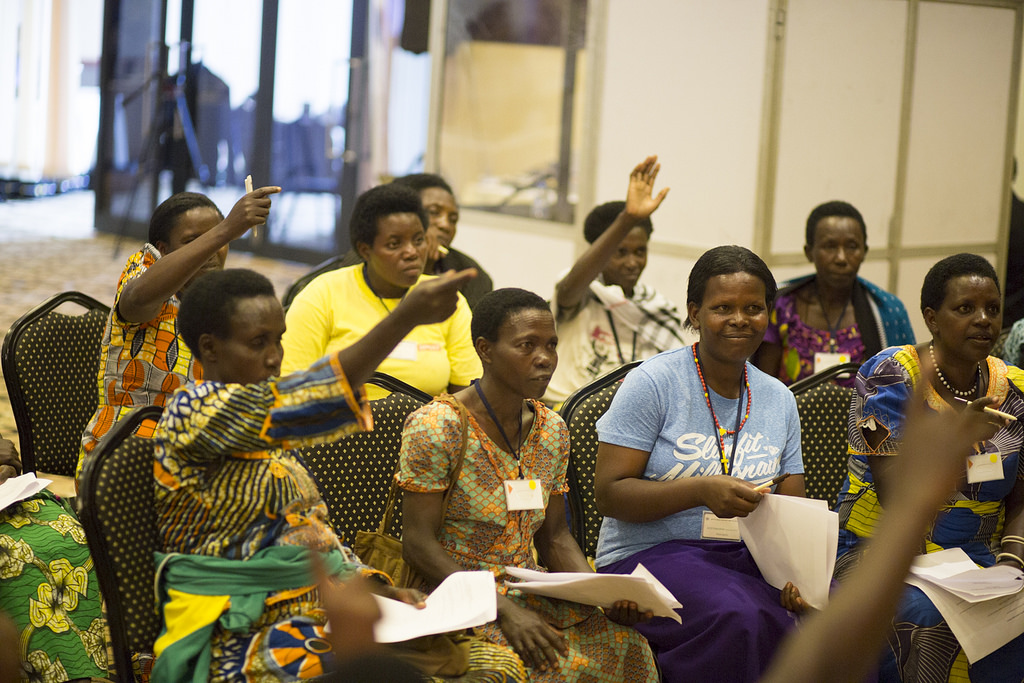Portland, Ore.-based Sustainable Harvest Coffee Importers is preparing to host Let’s Talk Coffee Rwanda, pitched as the country’s largest cupping and buying event for this year’s harvest, featuring representatives from 56 cooperatives representing more than 13,000 women throughout the country.
Taking place at the recently opened Kigali Marriott June 7-11, it’s the first LTC Rwanda event since 2015, and the first since Bloomberg Philanthropies committed a $10 million grant last September to Sustainable Harvest’s nonprofit sister organization, the Relationship Coffee Institute, designed to improve the lives of women coffee producers in Sub-Saharan Africa through social and economic empowerment.
“This event will give buyers a unique opportunity to taste 30 specially selected coffees from across Rwanda, while also being able to build direct relationships with the women behind them,” Sustainable Harvest wrote in an e-mail sent today. “A feature of the event will be our ‘Build Your Own Lot’ program, allowing you to take home your favorite selections from the cupping table.”
As an event platform led by the Relationship Coffee Institute, Let’s Talk Coffee is now in its 15th year, historically offering one large global LTC event per year, plus occasional “Let’s Talk Coffee Regional” events focused on specific countries of origin. All of the events are designed to include a wide range of stakeholders and voices from throughout the coffee chain, while promoting empowerment and equity for producers. The organization says it expects the upcoming Rwanda event to be it’s biggest yet in Africa.
In addition to cuppings and platforms for direct sales, the event will include farm, cooperative and washing station visits, as well as an educational program covering such topics as leveraging government innovation in Rwanda, building climate resilience and developing private-public collaborations.
Nick Brown
Nick Brown is the editor of Daily Coffee News by Roast Magazine.







Comment